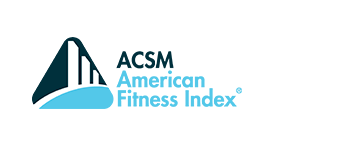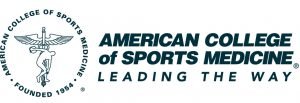For Immediate Release: May 19, 2015 at 12:01 am
Washington DC is the Nation’s Fittest City, report says
Exercise decrease, chronic disease increase highlight challenges in ACSM American Fitness Index
Indianapolis – Residents of the nation’s capital, followed by Minneapolis-St. Paul, and San Diego, enjoy a variety of outdoor exercise options, and have relatively low rates of smoking, obesity and diabetes. That combination of measurable health and community indicators makes them the three fittest of the 50 largest metropolitan areas in the U.S.
Oklahoma City, Memphis and Indianapolis rank last among the 50 metro areas studied in the eighth annual American Fitness Index® ranking being released today by the American College of Sports Medicine (ACSM) and the Anthem Foundation. View the rankings and individual metro data here or in the chart below.
There’s good news and areas of concern from the largest sports medicine and exercise science organization in the world. The AFI reveals a troubling 11.3 percent drop in the percentage of individuals who exercised in the last 30 days, and a 7.8 percent increase in the diabetes death rates from 2014 to 2015. The ranking also notes a 5.5 percent drop in those who eat enough fruit each day. Five metro areas dropped significantly in the rankings, falling five or more positions.
On the more positive side, there was also a 9.5 percent decrease in the percentage of respondents who reported that they had been diagnosed with angina or coronary heart disease, and a 5.5 percent increase in the number of park units from 2014 to 2015. Nine metro areas improved their ranking by five or more positions.
With funding from The Anthem Foundation, ACSM studies Metropolitan Statistical Areas (MSA) using a composite score to measure the health of each MSA. Access to public parks was added as a new measure in 2015, and the Washington-Arlington-Alexandria metro area topped the list for the second consecutive year with a score of 79.6 out of 100 possible points, a two-point improvement over 2014.
“The AFI is two things: a measure of how healthy a metro area is today, and a call-to-action for urban and suburban leaders to design infrastructures that promote active lifestyles and lead to positive health outcomes,” says Walter R. Thompson, Ph.D., FACSM, chair of the Advisory Board. “Our goal is to provide communities and residents with resources that help them assess, respond and achieve a better, healthier life.”
“We have proudly sponsored the American College of Sports Medicine (ACSM) American Fitness Index® for the past eight years and have witnessed the growing impact this report can have on the health and well-being of communities,” said Sam Nussbaum, MD, chief medical officer for Anthem, Inc. “Across the United States, government, business and organizations have proven that by working together we can improve the health of our cities. These coalitions are using the actionable data from this report to drive health improvement. It is heartening to see a city’s health improve, and this year there were some remarkable shifts in rankings. Opportunities remain and measurement, shared learning and commitment to healthier lifestyles will benefit individuals, our cities and our nation.”
Last year, ACSM also released its first series of data trend reports recapping and documenting progress during a five-year period for each metro area. You can learn more about community health data trends in a given area by going here.
Because physical inactivity has become an epidemic in the U.S., ACSM encourages Americans to exercise for at least 30 minutes and participate in 10 minutes of stretching and light muscle training five days a week. Modeling healthy behavior by reducing sedentary time, incorporating activity into the weekday schedule, joining walking clubs, setting goals and involving family and friends can improve fitness, reduce the risk of chronic disease and enhance quality of life.
At the community level, the data report can be used as an assessment and evaluation tool to educate community leaders on the importance of key indicators of physical activity. Leaders can then focus on policy, systems, and environmental change (PSE) strategies that are evidence-based and create sustainability for the community.
ACSM is a global leader in promoting the benefits of physical activity and advocates for legislation that helps government and the health community make it a priority. ACSM encourages Congress to support continued funding of parks, trails and safe routes to school, as well as the need for all Americans to meet the prescribed physical activity recommendations included in the National Physical Activity Guidelines, and the need for the guidelines to be regularly updated every 10 years.
The metropolitan rankings in the 2015 data report are:
*The scores shown have been rounded to the nearest tenth of a point resulting in some apparent ties; however, the rankings are based on the full calculated score values that were not equal in those cases.
Methodology
ACSM, the Indiana University School of Family Medicine and a panel of 26 health and physical activity experts developed the methodology to analyze U.S. Census data, data from the U.S. Centers for Disease Control and Prevention’s Behavioral Risk Factor Surveillance System (BRFSS), The Trust for the Public Land City Park Facts and other existing research data in order to give a scientific, accurate snapshot of the health and fitness status at a metropolitan level.
The data is made up of personal health, and community and environmental indicators. Visit the online newsroom at www.AmericanFitnessIndex.org for a complete list of the data components.
About the American College of Sports Medicine
The American College of Sports Medicine is the largest sports medicine and exercise science organization in the world. More than 50,000 international, national and regional members are dedicated to advancing and integrating scientific research to provide educational and practical applications of exercise science and sports medicine.
About Anthem Foundation
The Anthem Foundation is the philanthropic arm of Anthem, Inc. and through charitable contributions and programs, the Foundation promotes the inherent commitment of Anthem, Inc. to enhance the health and well-being of individuals and families in communities that Anthem, Inc. and its affiliated health plans serve. The Foundation focuses its funding on strategic initiatives that address and provide innovative solutions to health care challenges, as well as promoting the Healthy Generations Program, a multi-generational initiative that targets specific disease states and medical conditions. These disease states and medical conditions include: prenatal care in the first trimester, low birth weight babies, cardiac morbidity rates, long term activities that decrease obesity and increase physical activity, diabetes prevalence in adult populations, adult pneumococcal and influenza vaccinations and smoking cessation. The Foundation also coordinates the company’s year-round Associate Giving program which provides a 50 percent match of associates’ pledges, as well as its Volunteer Time Off and Dollars for Doers community service programs. To learn more about the Anthem Foundation, please visit http://www.anthem.foundation and its blog at http://anthemfoundation.tumblr.com.
For more information, contact:
Annie Spencer at (317) 637-9200 or aspencer@acsm.org (American College of Sports Medicine)
Aaron Cohen at (301) 633-6773 or aaroncohenpr@gmail.com (Asher Agency)
Leslie Porras at (818) 234-3368 or Leslie.Porras@anthem.com (Anthem Foundation)



12 comments